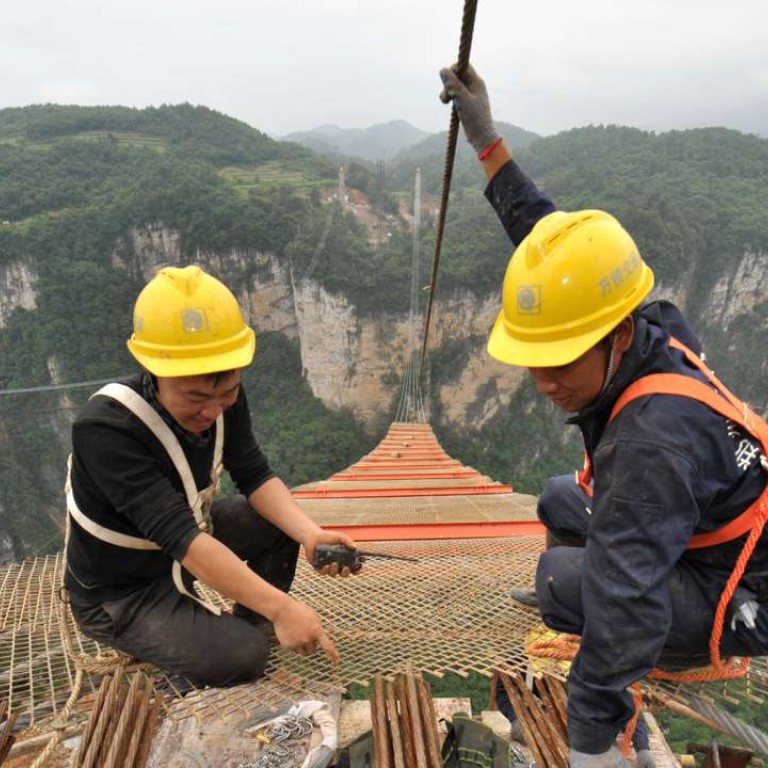
Relaxed investment rules for insurers welcomed, but with caution
CIRC move likely to widen firms’ choices, but may also add risk
The insurance watchdog’s decision this week to relax its rules to allow mainland insurers to invest in infrastructure projects will certainly open up their investment universes, but it may not necessary boost their profitability, as they open themselves to wider risks, according to analysts.
From this week, mainland insurance companies have a freer hand in their investment choices, according to an regulation update from the China Insurance Regulatory Commission (CIRC).
That includes the ability now to invest in all public private partnership infrastructure projects, instead of previously being able to invest in those from just fives sectors: transportation, communication, energy, municipal and environment protection.
Under the new regulation, companies only now have to register to invest in projects, as against having to seek approval from the regulator for each individual project.
The new rules also require insurance firms to have a risk-management structure in place, which sets out a clear line of responsible when investing in such projects.
CIRC officials say the new rule is primarily aimed at allowing insurers wider investment scope, at a time when bond yields and deposit interest rates remain low.
But also, it will allow insurance companies to invest in infrastructure investment projects and activities that can hopefully boost growth in the weaker economy.
Baron Nie, an equity analyst with investment bank Jefferies in Hong Kong, cautions, however, that insurers will only benefit from such policies, if they can successfully manage the risk involve.
“The latest regulation aims mainly at increasing the investment universe of insurance assets, as well as encouraging insurance funds to participate in infrastructure investment,” Nie said in a report.
“Risk management will be the key factor to success.”

Its top pick in the space remains Ping An Insurance.
The country’s One Belt, One Road projects remain key to its economic strategy, an initiative that is attempting to link mainland China with neighbouring countries to establish roads, highways, railways and infrastructure projects to promote trade and economic ties in the region.
It is estimated that US$8 trillion will raised to fund those projects in the next five years.
Brett McGonegal, chairman and chief executive of Capital Link International, said the Chinese government remains dedicated to not only funding large-scale infrastructure projects throughout the region, but taking the global lead on projects planned within the One Belt, One Road scheme, which stretches across 60 countries close to mainland China in Asia and the Middle East.
“As One Belt, One Road becomes reality, various funding gaps are driving policy makers to solve the issue of capital structure,” he said.
“While I applaud the new change that allows insurance companies to participate, I warn that these projects require proper levels of due diligence.
“Each will have various intricacies that need to be understood and modelled to make sure that the insurance companies are fit to invest, and that the risk profiles can be understood, in cash flow terms, from greenfield right through to construction,” McGonegal said.
He thinks One Belt, One Road will drive the next wave of Chinese and global infrastructure development, but adds that mainland life insurance companies would only succeed in getting involved, if they did so with caution right from the start.
“In the early days, we may see some sovereign guarantees for some of these mega infrastructure projects, in order to get them approved by the investment committee hurdles at the insurance companies,” he said.

